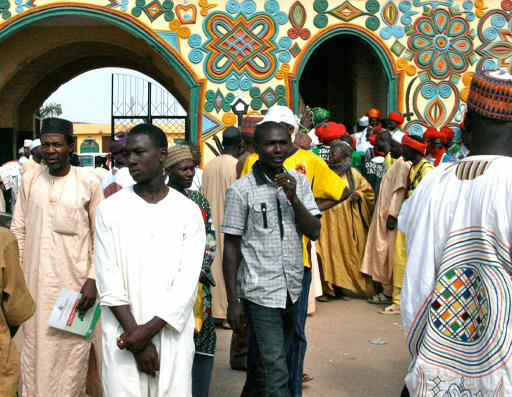
Nigeria is a paradox of promises and betrayals. Its democratic facade hides a troubling reality, one riddled with fears so deeply entrenched that they undermine the very essence of democracy itself. Homophobia, xenophobia, and a litany of other societal phobias have transformed Nigeria into a democracy-phobia state, where intolerance and fear dictate governance and social interactions.
Let us start with homophobia, a glaring stain on the fabric of Nigerian society. In 2014, the Same-Sex Marriage (Prohibition) Act was signed into law, criminalizing not just same-sex unions but also the mere association of LGBTQ+ individuals. The law, widely criticized by human rights organizations, has been defended by politicians and religious leaders as a safeguard of "African values."
But whose values are these? The cultural argument falls flat when one considers that many African societies before colonialism embraced diverse sexualities and gender identities. The homophobia we see today is a relic of colonial indoctrination, repackaged as tradition and weaponize as a political tool to distract from the government's failures. In a democracy, the rights of minorities should be protected, not vilified. Yet, in Nigeria, being LGBTQ+ is akin to wearing a target on one’s back.
Xenophobia is another manifestation of Nigeria’s democracy-phobia. The country’s federal structure is meant to promote unity in diversity, but instead, it often fuels division. Nigerians are quick to turn on one another, labelling fellow citizens as "outsiders" based on ethnic or regional affiliations. The herdsmen-farmers crisis, for instance, has been framed as an ethnic conflict rather than a policy failure. Politicians exploit these tensions, pitting communities against each other to consolidate their power.
Nigeria’s hostility extends beyond its borders. The treatment of African migrants, particularly from neighbouring countries, reflects a deep-seated fear of the "other." The irony is palpable: a nation whose citizens are often mistreated abroad has little compassion for immigrants within its own borders.
Religious intolerance is another phobia eroding Nigeria’s democratic foundations. The country is split almost evenly between Christians and Muslims, yet this diversity is a source of tension rather than strength. Sectarian violence is frequent, and political leaders often exploit religious divides to galvanize support, turning places of worship into battlegrounds. Blasphemy laws and Sharia court rulings in certain states further stifle freedom of expression, a cornerstone of democracy.
Nigeria’s gender inequality is symptomatic of its democracy-phobia. Despite the undeniable contributions of Nigerian women in every field, from politics to entrepreneurship, they remain sidelined. Women hold less than 10% of seats in the National Assembly, and the country’s deeply patriarchal structures perpetuate discrimination. The fear of women’s empowerment is evident in the backlash against feminist movements and the trivialization of gender-based violence.
Underlying all these phobias is a culture of silence and complicity. Nigerians are often reluctant to challenge oppressive systems, either out of fear or resignation. This silence emboldens those in power to continue their discriminatory practices unchecked. Activists and journalists who dare to speak out face harassment, imprisonment, or worse. Democracy thrives on dialogue and dissent, but in Nigeria, these are often viewed as threats rather than necessities.
To address its democracy-phobia, Nigeria must first confront its fears. This begins with education, fostering a culture of inclusivity and critical thinking. The government must repeal discriminatory laws, such as the Same-Sex Marriage (Prohibition) Act, and implement policies that protect marginalized groups. Political leaders must be held accountable for inciting division, and citizens must resist the urge to scapegoat one another.
Civil society organizations have a crucial role to play in this transformation. By advocating for human rights and promoting civic engagement, they can help dismantle the structures of fear that underpin Nigeria’s democracy-phobia. International pressure can also be a catalyst for change, but it must be accompanied by genuine local efforts.
Fear, in all its forms, has no place in a democratic society and until Nigeria confronts its homophobia, xenophobia, religious intolerance, and other phobias, it will remain a democracy-phobia state and as a consequence will boycott any attempt to embrace its real potentials.

No comments:
Post a Comment